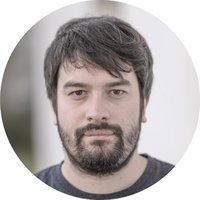City Transitions:
Society and the Spatial and Temporal Dimensions of Change
Conference at Saarland University
September 12th–13th 2024
We are delighted to announce that the 4th UrbanMetaMapping (UMM) international conference will be held in-person at Saarland University (Saarbrücken, Germany) on September 12th–13th 2024.
Dates
| Abstract deadline: | |
|---|---|
| Notification: |

Keynote Speaker
We are delighted to announce that the keynote speaker will be
Martin Fleischmann, Ph.D., Department of Social Geography and Regional Development, Charles University, Prague.
See the recording of his keynote “The Emergent Structure of Cities”, as well as the recording of his workshop “A Brief Introduction to Spatial Data Science”.
Call for Participation
Cities are in a constant state of evolution, but times of crisis, for example war or natural disasters, are catalysts for periods of major transition. While the physical transformation of cities is often very visible, particularly from an architectural, urban morphological, or functional (land use/zoning) perspective, transformation of the social fabric may also be substantial, but much less evident. Societal changes may be forced, steered, or take place organically. The societal changes we are most interested in are those which occur during times of city transition, for example: city reconstruction, urban planning initiatives- regeneration and gentrification, new social/economic strategies or policies, natural disasters, economic or political instabilities, border changes, mass movement of people in the aftermath of war, or other forms of social migration. These have major implications for the spatial distribution of society and the consequent social patterns that are etched deeply on the surface of today’s cities.
Societal transformation can be visualized, traced, mapped and analyzed with a view to dissecting and better understanding social phenomena and urban society, evaluating urban planning or political interventions at key times of transition, identifying social problems, unravelling societal complexities, responding to social tensions, and improving future cities. Social maps, however, can also function as cartographic representations used for communication, claiming/defending territories, mapping communities, social conflicts and propaganda. Against this backdrop, the conference seeks to explore: 1) the social legacies of urban transformation and city transition, 2) the ways in which societal change can be mapped and investigated, and 3) how social maps shape our understanding of urban spaces.
The fourth conference of the UrbanMetaMapping (UMM) research consortium therefore invites contributions primarily from the fields of human geography, urban planning, architecture, critical cartography, spatial digital humanities, history and sociology to examine the socio-economic and cultural evolution of European cities and the spatial dimensions of social cartography.
Proposals on, but not limited to, the following themes are welcomed:
- City transition and societal change
- Urban form (urban planning, urban design, urban morphology) and social patterns
- Social-economic legacies of urban transformation, i.e. post-war/post-disaster reconstruction, urban regeneration and development
- Relationships between the spatial organisation of cities and how societies take shape over time
- How society is mapped (mapping techniques and innovative methodologies)
- Analysing spatial and temporal societal change
- Functionality of social maps: political, territorial, propaganda, etc.
- Comparative case studies of cities within/between European countries
Proposals which combine historical perspectives with empirical case studies or empirically driven studies and/or the use of innovative methodologies, (i.e. in spatial digital humanities methods) will be particularly welcomed.
Funding
PhD Waivers: We expect to cover up to 250€ for travel and accommodation for up to 10 PhD students/Early Career Researchers. Please provide a short request for this (stating the importance of your paper to the conference and why you would benefit from attending) with the submission of your abstract.
There are no conference fees.
Application
Abstracts of a maximum 300 words for a 20-minute presentation (English) should be submitted together with a short biography (including contact details and affiliation) here by 14th April 2024. For questions and queries, please contact: conference-umm@uni-saarland.de.
Organisation Committee
Dr. Carol Ludwig, Dr. Seraphim Alvanides, Zara Krächan-Lashbrook and Toni Flinta
The conference is funded by the German Federal Ministry of Education and Research (BMBF) and hosted by Saarland University, Germany.